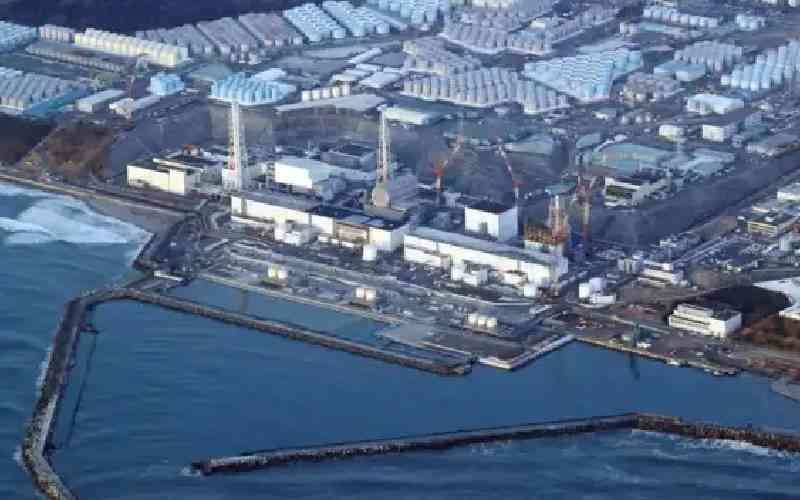×
The Standard e-Paper
Fearless, Trusted News

Japanese media reported Monday that the country is due to start releasing wastewater used to cool the crippled reactors at the Fukushima Daiichi nuclear plant as soon as the end of August.
The reports say Japanese Prime Minister Fumio Kishida is expected to discuss the issue at a trilateral meeting with U.S. President Joe Biden and South Korean President Yoon Suk Yeol, scheduled August 18 at Camp David, Maryland.